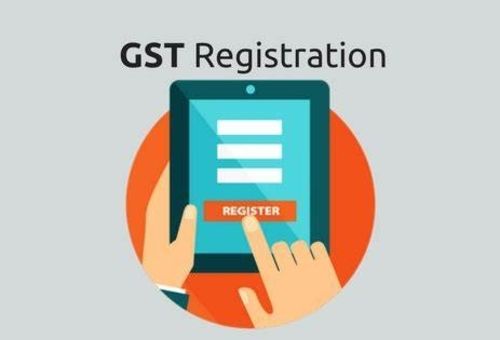The Ultimate Overview to Streamlining the GST Enrollment Process and Demands for Small Company Owners

Recognizing GST Basics
To grasp the principles of the Item and Services Tax (GST) system, local business proprietors need to initially recognize its underlying ramifications and concepts. GST is a value-added tax obligation levied on the majority of goods and services for residential consumption. It aims to enhance the taxes procedure by changing several indirect taxes imposed by the state and central federal governments. Under the GST regime, services are needed to sign up and accumulate tax obligation in behalf of the federal government, ensuring transparency and conformity.
One of the essential concepts of GST is input tax debt, which allows businesses to declare debt for taxes paid on their purchases. Comprehending these basic principles is vital for little organization owners to navigate the complexities of the GST system and make certain conformity with the regulation.
Eligibility Criteria for Registration
Having established a fundamental understanding of GST concepts, small service owners should currently fulfill details eligibility criteria to wage the registration process. In India, entities involved in the supply of items or solutions with a yearly accumulation turnover surpassing Rs. 40 lakhs (Rs. 10 lakhs for unique group states) are called for to sign up for GST. Furthermore, particular services such as those entailed in inter-state supply of products, casual taxable persons, and those called for to pay tax under the reverse fee device have to sign up for GST irrespective of their turnover. Furthermore, organizations that were registered under the previous tax obligation regimen (VAT, solution tax obligation, and so on) are likewise mandated to register under GST. Agricultural services that only provide create out of primary production are excluded from GST registration. It is critical for local business owner to thoroughly assess their qualification based upon these standards to guarantee compliance with the legislation and stay clear of any kind of charges for non-compliance.
Records Required for GST Enrollment

Simplified Registration Process Steps
Adhering to the collection and confirmation of the requisite records, the enrollment procedure for GST can be navigated through a collection of streamlined actions made to facilitate efficient compliance for small company proprietors. Upon effective verification, an Application Recommendation Number (ARN) is released, suggesting the completion of the GST registration procedure. By following these simplified actions, small service owners can efficiently register for GST and make certain conformity with tax obligation regulations.
Tips for Ensuring Conformity
To keep regulatory adherence and operational stability, persistent oversight and aggressive measures are pivotal in ensuring conformity with GST demands for tiny organization owners. Small company owners should remain updated with GST guidelines, submitting target dates, and any type of changes in tax prices to avoid charges and maintain a good standing with tax authorities. One vital idea for compliance is to keep precise and comprehensive records of all transactions, including billings, invoices, and expenditures connected to GST. Frequently fixing up economic records with GST returns can help in recognizing and remedying any disparities immediately. Furthermore, performing regular interior audits or seeking professional support can guarantee that the organization is adhering to all GST rules correctly. It is additionally vital for little business owners to spend in GST-compliant bookkeeping software application that can simplify the tax filing procedure and minimize errors. Attending GST awareness workshops or training programs can enhance understanding and compliance with GST regulations, eventually profiting the company in the long run.
Conclusion
In conclusion, small company proprietors must recognize the basics of GST, meet the qualification standards, gather required records, and comply with the streamlined registration process steps to make certain compliance. By streamlining the i was reading this GST registration process and requirements, special info small company proprietors can avoid charges and operate their companies smoothly within the legal framework - Singapore GST Registration. It is essential for local business proprietors to stay certified and informed with GST laws to maintain an effective company procedure
Little service proprietors seeking GST registration must ensure they gather and submit the needed papers to finish the registration procedure effectively. The files required for GST enrollment generally include proof of company enrollment or incorporation, PAN (Long-term Account Number) card of the company identification, address and entity evidence of the promoters/partners/directors, photos, address evidence of the area of service, bank account declarations or terminated cheques, and permission types. Attending GST understanding workshops or training programs can improve understanding and conformity with GST laws, ultimately benefiting the business in the lengthy run.
By streamlining the GST enrollment process and requirements, small business owners can prevent charges and operate their organizations smoothly within the lawful framework. It is crucial for tiny business proprietors to stay compliant and educated with GST laws to preserve a successful service operation.